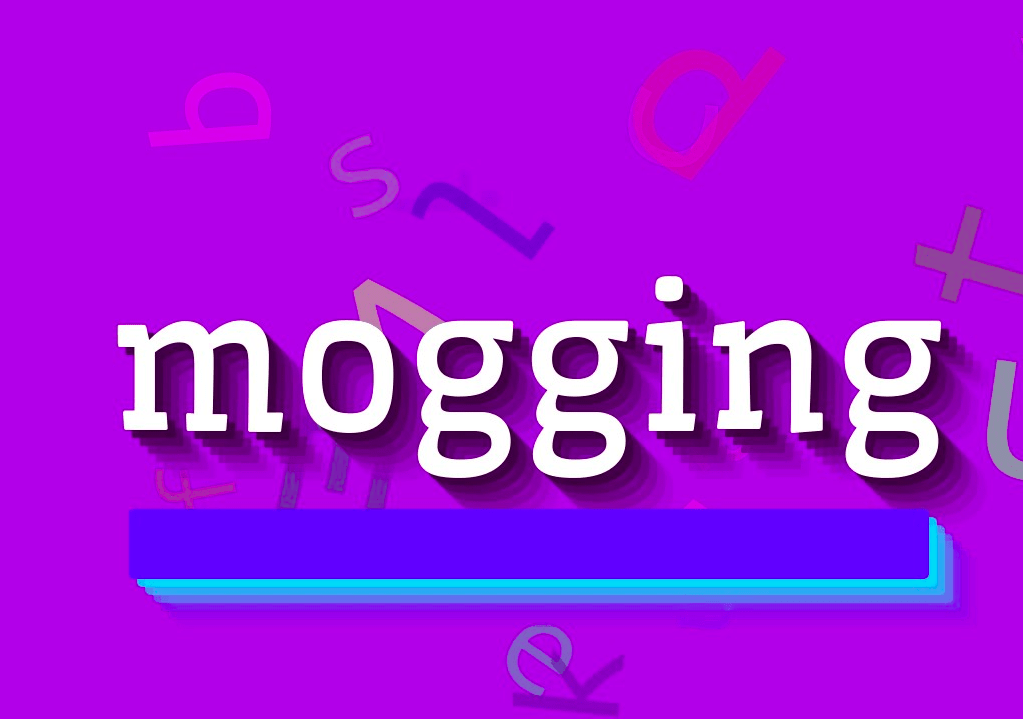What Is Mogging? A Deep Dive into Its Cultural Significance

In a world buzzing with ever-evolving slang and buzzwords, “mogging” has emerged as a term that’s capturing attention across various platforms. But what exactly does it mean, and why is it creating such a stir? Buckle up as we dive deep into the realm of What Is Mogging, exploring its definition, origins, and cultural impact.
What Is Mogging: The Basics
So, What Is Mogging? At its core, mogging is a term that has evolved from online gaming and social media environments. It’s derived from the word “mogul,” which typically refers to a person of great wealth or power. In the context of mogging, however, it’s all about domination and outshining others, particularly in a social or competitive setting.
The Definition of Mogging
Mogging refers to the act of overshadowing or outdoing others in a particular sphere. Whether it’s in physical appearance, social status, or skills, mogging is about being the standout figure in a given context. Think of it as a form of social or competitive one-upmanship where someone’s achievements, looks, or presence are so impressive that they leave others in their wake.
Origins and Evolution
Mogging didn’t just pop up out of nowhere. It has roots in various online communities and social media platforms, where it was used to describe situations where someone clearly outperformed or outshone their peers. Over time, it has been embraced by a broader audience, extending beyond gaming and social media into everyday vernacular.
What Is Mogging? Cultural Significance
Mogging isn’t just a fleeting trend—it’s a reflection of broader cultural and societal dynamics. Let’s unpack how this term fits into the larger cultural picture.
Mogging and Social Media
In the age of Instagram, TikTok, and Twitter, mogging has found a perfect home. Social media platforms are ripe with opportunities for individuals to showcase their lives, achievements, and personas. Here, mogging manifests as people posting about their seemingly perfect lives, high-status achievements, or striking appearances, often leading to others feeling overshadowed or inspired to up their game.
The Impact on Self-Image
While mogging can be seen as a form of harmless competition, it can also have significant effects on self-image. For some, seeing others “mog” them might fuel their motivation and drive. For others, it could lead to feelings of inadequacy or comparison anxiety. Social media amplifies these effects, making mogging more visible and, sometimes, more impactful on personal well-being.
Mogging in Pop Culture
From celebrity culture to sports, mogging has permeated various aspects of pop culture. Celebrities often mog others with their extravagant lifestyles, impeccable fashion, or impressive achievements. This constant display of success and perfection can set standards and influence public perceptions of success and attractiveness.
The Role of Influencers
Influencers are prime examples of mogging in action. By curating their lives to highlight luxury, success, or beauty, they create a persona that stands out. This, in turn, can affect their followers’ perceptions and expectations, driving trends and shaping cultural norms.
Mogging and Its Psychological Implications
Mogging might be a term for social competition, but it also has deep psychological implications. Understanding these can help navigate the effects of mogging on our own lives and those around us.
The Drive Behind Mogging
What motivates people to mog? Often, it’s a blend of personal ambition, social validation, and competition. In many cases, mogging can be seen as a way to establish dominance or gain recognition in a particular field or community. It taps into the human desire for status and acknowledgment.
The Dark Side of Mogging
Not everything about mogging is sunshine and rainbows. There’s a darker side to this competitive behavior. Constant comparison and the pressure to outdo others can lead to stress, low self-esteem, and even mental health issues. It’s crucial to balance healthy competition with self-compassion and realistic expectations.
Mogging in Different Contexts
Mogging isn’t confined to one arena; it manifests in various contexts, each with its own set of dynamics and implications.
Mogging in the Workplace
In professional settings, mogging can be seen in how employees vie for promotions, recognition, or respect. This form of mogging often involves showcasing superior performance or achievements to stand out among colleagues. While it can drive productivity and innovation, it can also foster a cutthroat environment if not managed carefully.
Mogging in Relationships
In personal relationships, mogging might appear as one person constantly trying to outshine the other. This can manifest in terms of accomplishments, social status, or even material possessions. It’s important for relationships to maintain a balance where both partners feel valued and supported, rather than one consistently overshadowing the other.
Navigating the World of Mogging
So, how do you handle mogging, whether you’re the one doing the mogging or the one being mogged? Here are a few tips for navigating this complex social phenomenon.
Embrace Healthy Competition
If you’re motivated by mogging, use it as a source of inspiration rather than comparison. Set personal goals based on your own values and aspirations, and celebrate your achievements without focusing solely on others.
Cultivate Self-Awareness
Understanding your own triggers and responses to mogging can help you manage its impact on your well-being. If you find yourself feeling anxious or inadequate, take a step back and evaluate whether the comparisons are helping or hindering your growth.
Supportive Relationships
Surround yourself with supportive people who uplift and encourage you. Positive reinforcement and constructive feedback can help you thrive without the negative effects of constant comparison.
Conclusion
Mogging, with its roots in competition and social dynamics, has woven itself into the fabric of modern culture. Whether it’s on social media, in pop culture, or within personal relationships, understanding “What Is Mogging” it helps us navigate its effects and implications. By focusing on healthy competition, self-awareness, and supportive relationships, we can embrace the positive aspects of mogging while mitigating its potential downsides. After all, life is less about outshining others and more about shining our own light brightly.